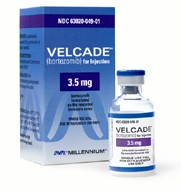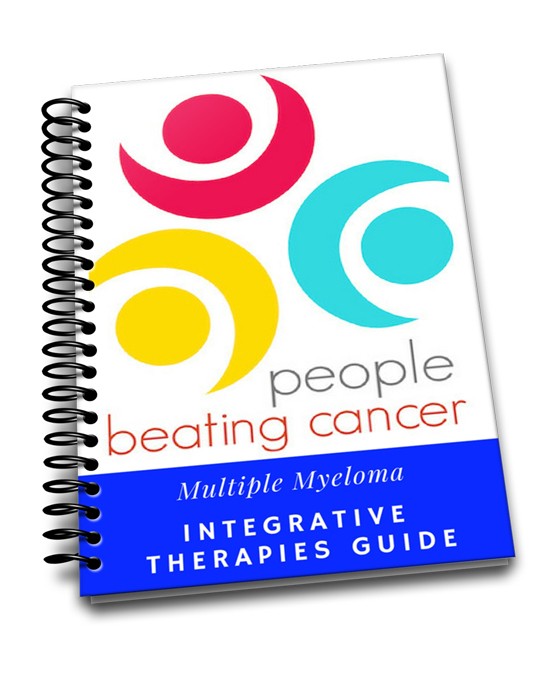“A stunning one-third of people with a cancer diagnosis use complementary and alternative medicines (CAM) such as meditation, yoga, acupuncture, herbal medicine, and supplements…”
Full disclosure. I am writing this post to focus exclusively on complementary and alternative therapy in addition to or in conjunction with conventional multiple myeloma therapies such as RVd.
Secondly, the article linked and excerpted below isn’t really clear as to the meaning of
- alternative
- complementary
- integrative therapies
I consider the most useful meaning of the phrase alternative cancer therapies are those practices that do NOT involve conventional or FDA approved therapies in any way. I believe the most useful meaning of complementary therapies are those practices that the cancer patient uses IN ADDITION to conventional FDA approved therapies. And finally, integrative therapies are those practices that research has shown can enhance the efficacy or reduce the toxicity of conventional FDA approved therapies.
As a MM survivor since January of 1994, researching and writing about MM since june of 2004, I am not surprized that, according to the article below, “one-third of people with cancer use complementary and alternative medicines.” In fact, I think the actual percentage of CAM users is much higher. There is overwhelming research showing that complementary therapies alone, benefit cancer patients manage the short, long-term and late stage side effects of chemotherapy and radiation. Cancer patients, MMers in particular, are reluctant to talk about their practices with their often negative thinking oncologists.

Multiple myeloma is considered to be an incurable blood cancer. Even MM specialists will agree that standard-of-care therapies such as revlimid, velcade and dexamethasone can bring short, long-term and late stage side effects. And best case scenario for the MM patient is a long first remission (5-7 years) followed by successively shorter remissions and death. And that is the best case scenario. Until conventional myeloma oncology can cure this often aggressive blood cancer, I don’t see how MMers can NOT use CAM therapies to help manage their MM.

Because I do believe that MMers must use both conventional MM therapies as well as evidence-based non-conventional therapies to manage their MM, I advise MMers who use CAM therapies to do so only before and after conventional therapies. For example, if you supplement with curcumin, stop the day before you are scheduled to take velcade, and then resume your supplementation the day after chemotherapy administration. believe that this is the only way to get the best that both therapies have to offer.
Have you been diagnosed with multiple myeloma? What stage? What is your therapy plan? Please scroll down the page, post a question or comment and I will reply to you ASAP.
Thank you,
David Emerson
- MM Survivor
- MM Cancer Coach
- Director PeopleBeatingCancer
Recommended Reading:
“A stunning one-third of people with a cancer diagnosis use complementary and alternative medicines such as meditation, yoga, acupuncture, herbal medicine, and supplements...
Herbal supplements were the most common alternative medicine and chiropractic, or osteopathic manipulation, was the second most common…
“Younger patients are more likely to use complementary and alternative medicines and women were more likely to, but I would have thought more people would tell their doctors,” Dr. Sanford said, referring to the finding that 29 percent of people who use complementary and alternative medicine did not tell their physicians…
“They may interact with the medicines we’re giving them, and through that interaction it could alter the level of the medicine in the patient…”
“I have plenty of friends in this cancer journey who I’ve met who take supplements. A lady I met recently takes 75 supplements a day. It takes her two hours to package her supplements every week,” she said.
Ms. Myers said every person in her cancer support group uses some kind of alternative medicine. In addition to supplements, she practices meditation and yoga with guidance from a smartphone app…
She said she knows of some people with cancer who use only alternative medicine — and no traditional medical treatments. Dr. Sanford said this is a dangerous approach that could be fatal…
She said she had neuropathy or nerve damage from chemotherapy, and yoga almost immediately took the pain away.
“I couldn’t get onto my toes. After the second time of going to yoga, I was able to go onto my toes,” she said. “I wish I would have known about the yoga earlier. It was just such a benefit and helped me so much. I highly recommend it to anyone.””





